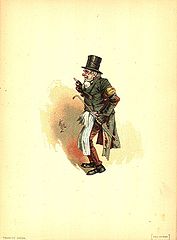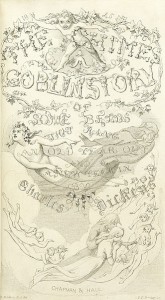A better class of class system? Nah. Just more categories

Trotty, a ‘ticket-porter’, is the main protagonist in Dickens’s ‘The Chimes’. He wonders whether his sort of people – the working classes – are wicked by nature
“O let us love our occupations,
Bless the squire and his relations,
Live upon our daily rations,
And always know our proper stations,”
– Lady Bowley in ‘The Chimes’, Charles Dickens
Dickens was writing in the mid-19th century. Despite everything – the supposed new egalitarianism; the allegedly burgeoning electronic equality; the rumoured broadening of the middle class, which is said to be pushing the highest and the lowest to the edges and despite the new social scale of seven classes produced in Britain today, Wednesday – I’m not so sure that everything (or much of anything) has changed.
The new class system says that it is no longer accurate to discern just three classes –Upper, Middle and Working. Instead, there is the ‘Elite’ and the ‘Precariat’ or precarious proletariat – at either end of the new social scale. In the middle, are five classes, it says:
– Established Middle Class
– Technical Middle Class
– New Affluent Workers
– Traditional Working Class
– Emergent Service Workers
That sounds more like slicing and dicing, or plain gerrymandering of all the old categories rather than discerning any new and startling change. After all, in Britain, the Royal Family remains at the top of the tree, no matter how wealthy Richard Branson gets or how well David Beckham kicked a ball or his wife Victoria designs dresses.
The new study, by the London School of Economics and University of Manchester, is based on two surveys conducted by the BBC and research firm GfK.
It’s a moot point if it has the simple, brute force, the directness and the truthfulness of the earlier system.
Most of all, I’m not sure it makes an untruth of the class-conscious Dickens’ rhyme at the top.
And surely, that is the truest test?


